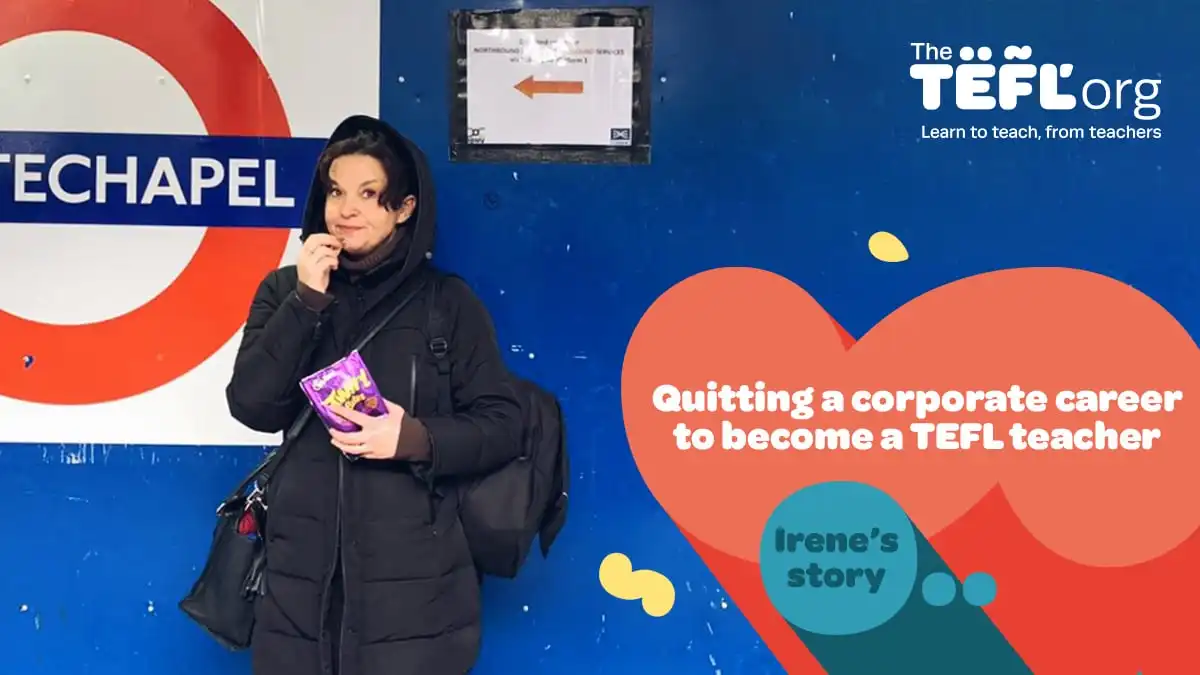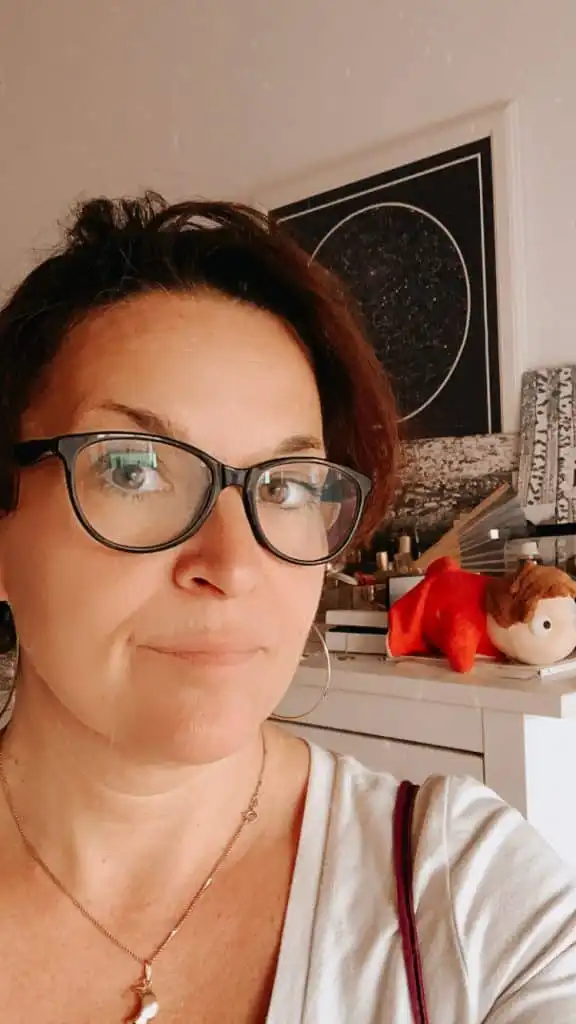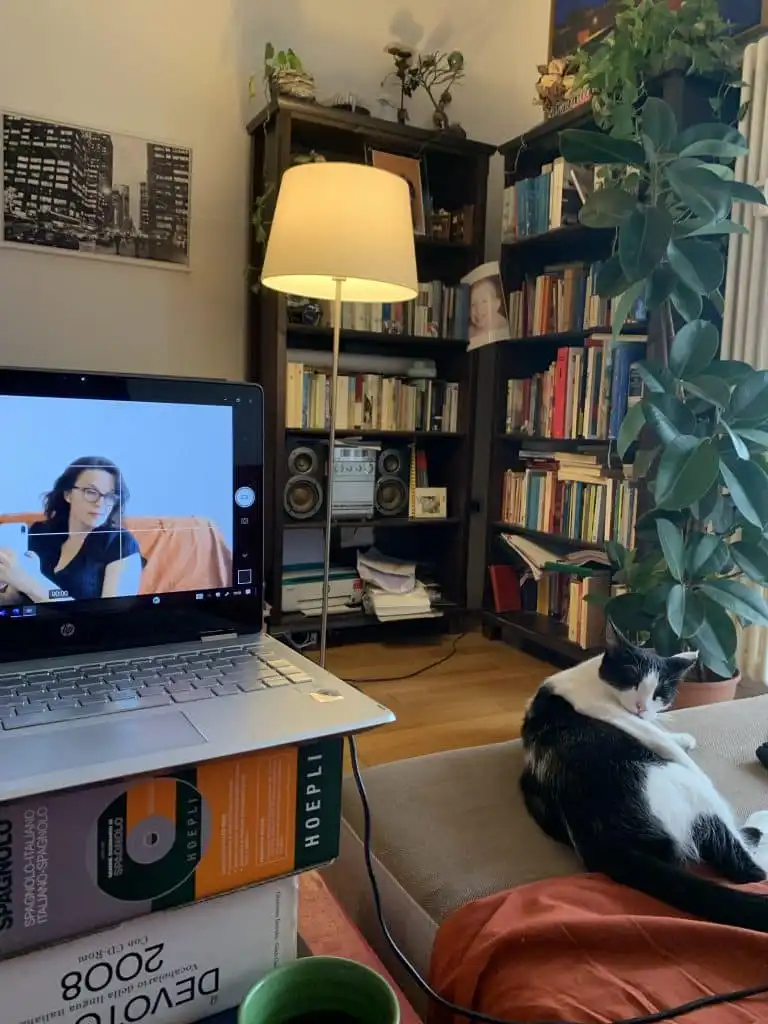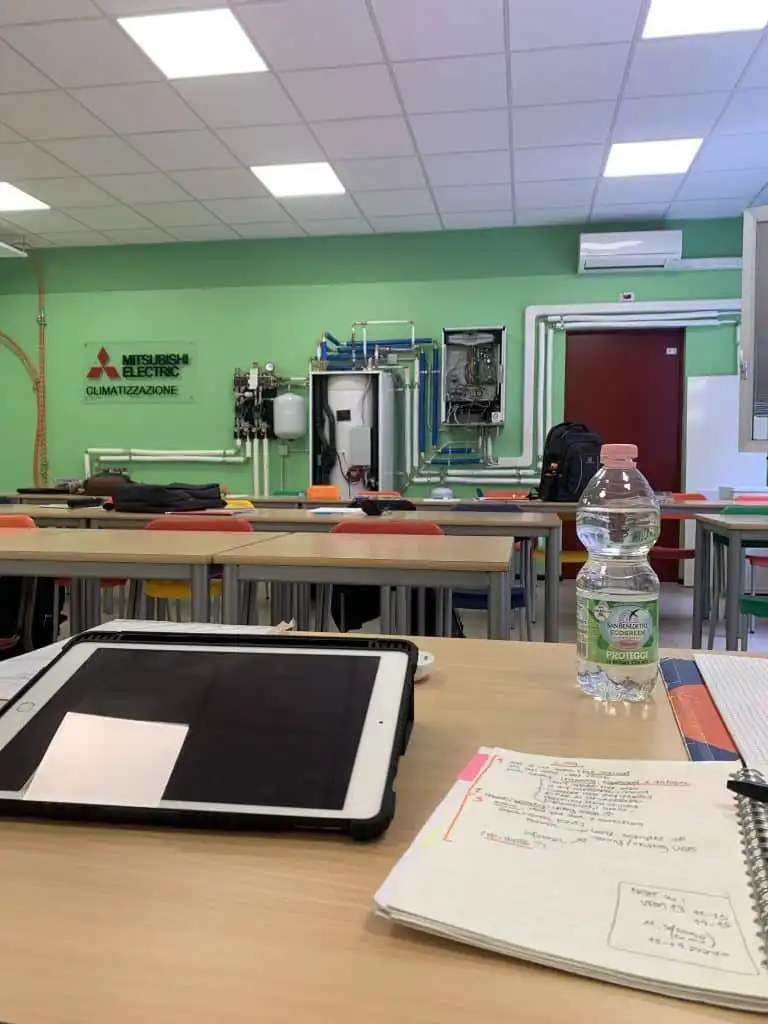
Irene’s story: quitting a corporate career to become a TEFL teacher
I studied foreign languages and graduated in translation. As a European citizen, I worked corporate jobs for some twenty years travelling around for work: San Francisco, Dublin, London, Paris.
I know: this sounds pretty cool when it comes to posh hotels and fine dining, but if you really love getting to know countries and cultures you don’t want to end up in a routine made of airport-office-hotel. After a while, it all starts to make little sense.
Then one day, as my 4-year-old son walked into his very first English lesson, I got introduced to his teacher and realised she was also from our country. Which country, you ask? Doesn’t matter at this point, but stay with me and I’ll tell you.
That day I had a kind of epiphany: did that mean I might teach too? And right there, around the corner from where I lived with my family? I asked that school and they said in fact I could, yep, why not? But was I willing to quit my (stable, safe, never-changing, absolutely tedious) job to jump into the void?
I was.
I left a corporate job in digital marketing to teach a bunch of loud preschoolers - and yes, everyone thought I’d gone completely bonkers. (Raise your hand, freelancers everywhere, if that sounds familiar!) But the reality of it is, I’d made a plan, I’d taken steps, and I was finally ready. I knew that was only phase one of my plan.
“Did you plan for contingency?”: teaching through the pandemic

You know that scene from “Breaking Bad” where Saul Goodman points his finger and asks: “did you not plan for contingency? Even the Starship Enterprise had a self-destruct button.” When you’re starting your own business, it’s important to prepare a plan B, C and W too - you know, for the unthinkable.
The unthinkable happened, and I used it to invest in my own experience. When the pandemic swept us from our feet and lockdowns shut down our social lives, my lessons moved online and I found myself with more time at hand: I looked at how I could add something more to my professional profile - a teaching qualification. I was also scared to death, by the way, and needed to keep myself busy.
The TEFL Org had worked super fast to turn into a fully functional online school and deliver their classroom TEFL courses online . This was in March 2020; nobody was prepared for what was going on, certainly not at an educational level. I really think TEFL Org were visionary to do what they did back then!
As lockdowns ended around European countries, at a time of remote learning and Brexit's immediate aftermath, my profile - solid digital background, teaching qualification - became precious.Come September, from that preschool I moved to elementary and young learners’ courses, and then teens and adults. This year I have also completed a bunch of Cambridge exam prep courses - online, to kids, from a school that’s based in an entirely different city.
Teaching professionals in-person and online

They are generally proficient, motivated and collaborative, so we mainly end up having a lot of fun together, and I can say I have made a bunch of really good friends. They are also working mostly from home, so the kind of relationship we build is as genuine as it would have been had we met in-person in 2019.
The great thing about EF is that most courses are individual, which turns out to be a lot more effective as the students don’t feel any peer pressure and I as a teacher can deliver custom-made lesson plans: we review presentations and emails, but also take the chance to use finance articles as reading comprehension exercises, whilst at the same time learning more about blockchain and how design impacts technology. I use a variety of online tools like Miro board - I share the board and take notes there, add links and images, then after the lesson, I download it as PDF and send it to my students. Voilà!
Teaching English as a non-native
My online students work in other European countries. They’re usually not intimidated by the screen and stop feeling shy about their accents pretty fast, because I have one too.
What they take away from me is what linguistics has been going with for the past twenty years: English is a lingua franca , we stopped aiming to speak like Hugh Grant because we all come from somewhere other than Eton, and everyone has an accent.
Mine is a fun mixture: my own, a filling of received pronunciation because I worked for ages in certain high-tone places in London, and a nice tasty crumble of Cali English from my days of the New Economy. “Awesome”.
Anyway, most kids today spend hours on Youtube and Netflix: their accents are way more American or British than mine (depends on what they watch!), and I think that’s great.There was once one school director who, upon hiring me, nonchalantly threw in if I could pronounce my own name the English way and, well, “I’m not saying you should lie but maybe let the students think you’re British?”. Yeah, no. It’s not like I should hide who I am.
Fortunately, that person was an exception.
Teaching in state schools

Teaching in public schools in my country is only possible by getting certain university degrees, taking a State test, and if you pass that then you can move up a ranking and see where you end up… no thanks. That would be time-consuming and inefficient for me.
At private schools, it works the same as with other jobs: you just send your resume. June-July is the best time to do that, and that’s how last year I ended up teaching in a high school. Many schools will turn to you as a substitute teacher, and that’s fine if you want to build up some experience and confidence. You do get a lot of free books and training!If someone had come to me as a kid and told me I’d teach Shakespeare one day, I would have never believed them.
It was an emotional experience, and as always the best part of it all is the relationship you build with students: teenagers take a lot out of you, but they also cover you in all those feelings they feel all so deeply! When I teach children and teens I do feel that I’m giving back something to that younger self of mine.
Where I’m calling from
These have been three crazy years. I’ve been teaching in-person, online, and in hybrid mode (the craziest version of all, any teacher will confirm). Any significant change takes a lot of determination and humility, but this job really calls for all your strength and passion.
I have been working hard all the time: in order to teach, you need to study. I have studied electronics and mechanics, I have been up all night with my literature books, the kids’ texts and on my own, and all my notes again and again; I have taken additional qualifications - DSA for teaching languages, teaching young learners online - and more will come, I’m sure. I’d love to take up teaching Italian to refugees.
Because yep, did I mention? I am Italian and I live in Milan. I have multiple clients, can manage my own time quite well, have crafted a decent teaching curriculum that I am quite proud of; and I will only travel for my holidays now.
You can follow Irene on Instagram ( @irenedal ) and Linkedin .
Interested in starting your own TEFL journey but don't know where to start? Take our quick course quiz to find out what TEFL course is the best option for you!
